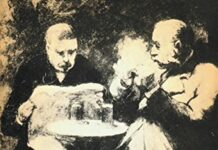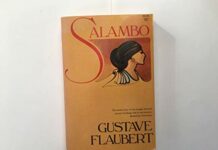
Ebook Info
- Published: 2005
- Number of pages: 364 pages
- Format: EPUB
- File Size: 0.37 MB
- Authors: Gustave Flaubert
Description
In his own words, the novel is “a kind of encyclopedia made into farce . . . A book in which I shall spit out my bile.” At the center of this book are Bouvard and Pécuchet, two retired clerks who set out in a search for truth and knowledge with persistent optimism in light of the fact that each new attempt at learning about the world ends in disaster.In the literary tradition of Rabelais, Cervantes, and Swift, this story is told in that blend of satire and sympathy that only genius can compound, and the reader becomes genuinely fond of these two Don Quixotes of Ideas. Apart from being a new translation, this edition includes Flaubert’s Dictionary of Received Ideas.
User’s Reviews
Reviews from Amazon users which were colected at the time this book was published on the website:
⭐You will be utterly amazed by this book by one of the world’s greatest writers, not exactly known as a humorist (understatement), as you split your sides laughing at the two title character idiots and their efforts to make sense of the world. BUT in a lot of ways, their farcical efforts will remind you (or at least they did me) that our own attempts to make sense of things are no less ludicrous. One of the most enjoyable books I have ever read! Think Cervantes!
⭐This is one of the most flat-out hilarious books I’ve ever read. The part where Bouvard and Pecuchet remodel their garden using the guidelines found in a fashionable book of Garden Architecture had me literally rolling on the floor, holding my sides. Couldn’t stop laughing. Of course, it’s also a genuine masterpiece, as is his more famous Madame Bovary, offering deep insight into human psychology. This takes place during the second half of the 19th century, but it seems completely relevant to today’s trendy culture, with all the hot fads and fashions, as well as all the popular psychological, political, economic, sociological theories, which Flaubert parodies to devastating effect here. Compares well with Samuel Beckett’s comic masterpieces, John Kennedy Toole’s A Confederacy of Dunces, or Cervantes Don Quixote.
⭐Having read Barnes’ “Flaubert’s Parrot” and seeing reference to this title in connection with the associated “Dictionary of Accepted Ideas,” I wanted to get this book as it is a recent translation and includes related content. My interest also goes back to my curiosity about “Du Cliché à L’Archétype: La Foire du Sens, Accompagné du Dictionnaire Desidées Reçues de Gustave Flaubert,” the French translation of Marshall McLuhan’s “From Cliché to Archetype” (see my review of the English edition).Contents include the introductory “Stan and Ollie in the Lab” by translator Mark Polizzotti and the Preface by French novelist, poet, critic and editor, Raymond Queneau. Then come the 8 chapters of Bouvard and Pécuchet which relate their meeting and activities: (1) Kindred Souls, (2) Experiments in Agriculture, (3) Amateur Chemists, (4) Researches in Archaeology, (5) Romance and Drama, (6) Revolt of the People, (7) “Unlucky in Love,” and (8) New Diversions. Some versions end with chapter 8, while this edition includes chapters 9 and 10 which deal with the main characters exploring religion, education (after taking in some children) and their return to relying on a number of their initial predilections and talents. Since Flaubert died before completing the book, the last chapters relate what the author was planning to cover based on his remaining notes. Finally, there is the Dictionary of Accepted Ideas, and the brief Catalogue of Fashionable Ideas.Based on my interests, parts that stood out for me included the introductory material along with final chapters and lead in to the “Dictionary.” More specifically, these segments help in understanding Flaubert’s opus as well as its meaning and significance for someone like McLuhan (and his French translator de Kerckhove). For instance, Polizotti explains (pg. 17), “At its core . . . [this novel] is a classic tale of human aspiration: the age-old desire to be more than oneself. . . [the] protagonists struggle to come to terms with the onslaught of new knowledge confronting them, and with the societal attitudes that accompany it, by living out a veritable encyclopedia of modern pursuits . . . they set out to master discipline after discipline . . . with a bullish faith in their own abilities that more or less guarantees disaster.” He goes on to convey (pgs. 19-20) that the narrative “. . . stages Flaubert’s legendary intolerance for stupidity . . . [as well as] the commonplaces, clichés and biases that regulated society”; yet, he indicates the way “. . . the novel is constructed almost entirely on clichés . . . many of which appear later in the ‘Dictionary’. . . “ There also references to Flaubert’s ‘comedy of ideas’ as a precursor to modernist and post-modernist novels such as those by Borges and Calvino (see my reviews of “Labyrinths” and “Six Memos for the Next Millennium” by these respective authors).In his remarks, Queneau relates (pg.46) that “. . . Bouvard and Pécuchet . . . do not become wise . . . until they compile . . . their ‘Dictionary’ and stop aiming at a final conclusion.” He continues by relating a letter between Flaubert and his confidant Bouilhet, many years before this work was started. This missive suggested that “[The ‘Dictionary’ could be] finished and proceeded by a good preface where we would indicate how the work has been written to reconnect the public to tradition, to order, to general convention, and arranged in such a manner that the reader is not to know whether or not he is being played for a fool . . .” Such discussion brought to mind Eric McLuhan’s “Cynic Satire” (see my review) and helped me better comprehend the reasons Flaubert’s works such as Bouvard and Pécuchet included in this tradition.As for the text of the novel itself is pleasant and well written enough to make it resonate even in our times. However, most of the chapters tend to run on and on regarding their respective topics. The first chapter about Bouvard and Pécuchet’s meeting and formation of their friendship is charming. There are clever pronouncements and affecting stories at various points. For example, in chapter 5 on “Romance and Drama,” Bouvard exclaims (pg. 196) “’Go away with your documents! I want something to lift me up, and take me away from the miseries of this world.’ And Pécuchet, craving for the ideal, led Bouvard unconsciously towards tragedy.” The protagonists move on and as indicated (pg. 197-98) “They then went in for comedy, which is the school of nuances . . . Pécuchet could not manage it . . . There was still tragicomedy [serious comedy or tragedy of everyday life] . . . “If literature and such matters as progressing “From Cliché to Archetype” interest you, by all means look into this edition of Bouvard and Pécuchet to become familiar with this masterwork by Flaubert and such areas of its influence.
⭐The previous “reviewers” seem to be perfect candidates for modern equivalents of Messieurs Bouvard and Pécuchet, albeit with reversed intellectual aspirations. Chacun à son mauvais goût aside, this book is caviar, a feast for readers despairing of finding subtle, superior satire in contemporary literature. Fortunately for discerning readers, some things never change – in fact, our cyber world has spawned hoards of Bouvards and Pécuchets. This book is a gem, the wonder being great at Flaubert’s patient, meticulous craftsmanship in mirroring the world’s inanities.
⭐Flaubert’s brilliant, and incomplete, final work (he died without completing its final couple of chapters, which exist only in outline form) has been long overdue for a new translation, and new packaging. While earlier versions always made the work look musty, the new Dalkey Press release looks great (although my cover is different from the one pictured above) with a new translation by Mark Polizzotti (author of a good biography of Andre Breton, pope of surrealism) and a reprint of an earlier preface by Raymond Queneau, as well as an appendix including “Dictionary of Accepted Ideas” and “Catalogue of Fashionable Ideas.”Flaubert’s work always hovered somewhere between realism and modernism, which made him the literary equivalent of the Impressionist painters, and in his last work he goes the furthest in the direction of modernism, so much so that one is struck almost immediately by the affinities between this work and the later absurdist literature of Beckett and Kafka. Kafka always spoke of Flaubert in tones of veneration, and his admiration is nowhere clearer, at least for me, than in Bouvard and Pécuchet.Flaubert’s work remains as thrillingly modern as, say, the paintings of Manet, and it deserves to be re-discovered and celebrated. From its seemingly inhospitable soil has grown some of the greatest riches of twentieth century literature.
⭐I read this because of a reference to it in “The Know-It-All” by A.J. Jacobs. That book was hilarious and so I thought Flaubert’s would be along the same lines. WRONG! It was so un-funny and quite boring, really. Very redundant. The author himself, in the Introduction, predicted that “the reader won’t read me—the book will put him to sleep from the start” and “I’m scared it might bore people to death.” The story is about two friends who study new things (philosophy, gardening, politics, history, etc.) in each chapter only to get confused, overwhelmed, fail, and give it up. Next chapter, a new topic but same results. And over and over and over. I slogged through the whole book and there were a few comic moments, but what a waste of time.
⭐Excellent!
Keywords
Free Download Bouvard and Pecuchet in EPUB format
Bouvard and Pecuchet EPUB Free Download
Download Bouvard and Pecuchet 2005 EPUB Free
Bouvard and Pecuchet 2005 EPUB Free Download
Download Bouvard and Pecuchet EPUB
Free Download Ebook Bouvard and Pecuchet




